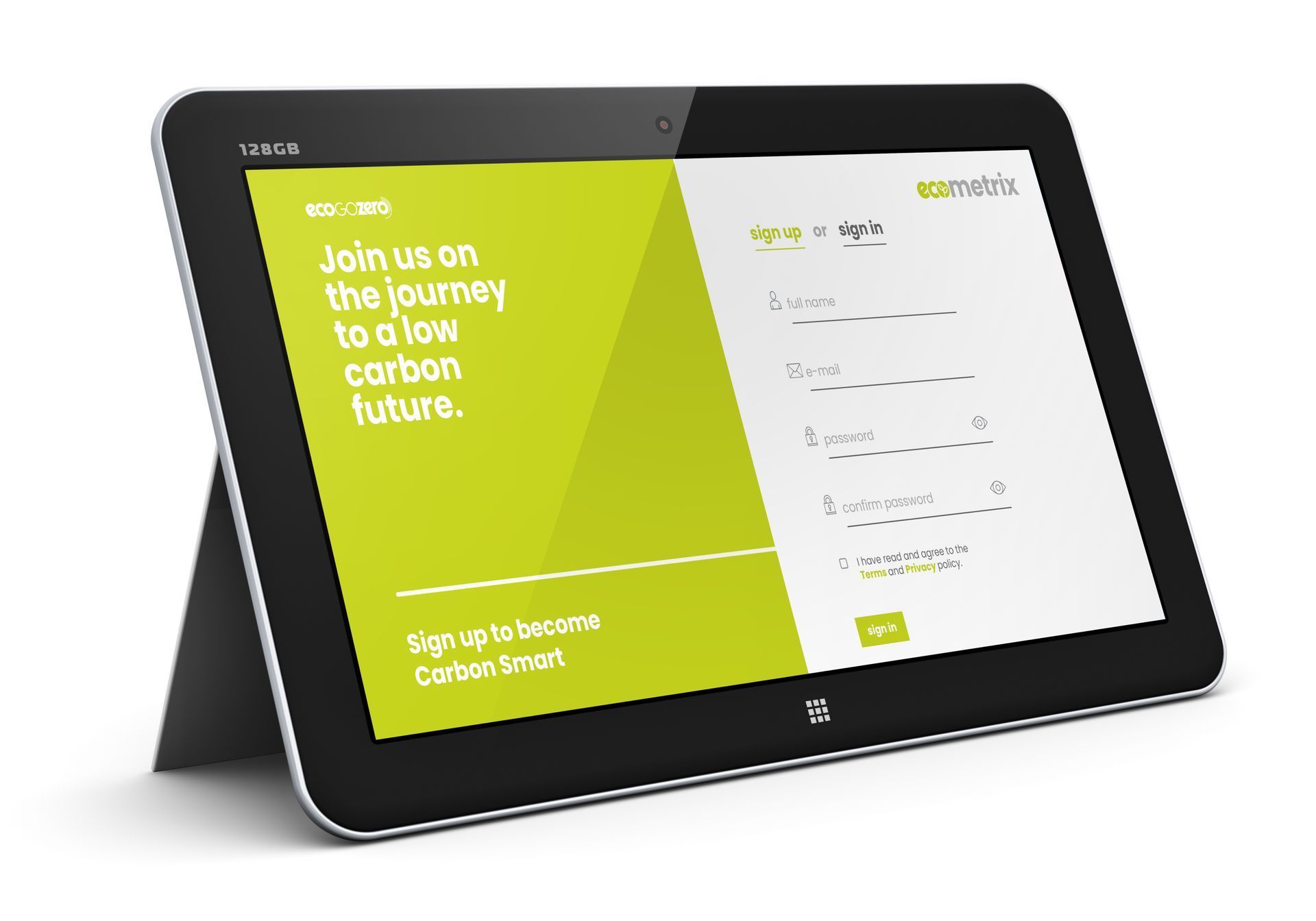EcoMetrix: carbon management software

Carbon accountancy.
Why you should get onboard with EcoMetrix
Unlock the power of sustainable transformation with our cutting-edge carbon management software, empowering businesses to drive environmental stewardship, cost savings, and future-proof growth.
Seamlessly measure, track, and optimise your carbon footprint with our intuitive and comprehensive platform, providing unparalleled visibility into your emissions across the value chain.
Leverage actionable insights and advanced analytics to identify strategic opportunities for emission reductions, resource efficiency, and sustainable innovation.
Streamline reporting processes, meet regulatory requirements, and elevate your brand reputation through transparent and accurate carbon disclosures.
Join the global movement towards a greener future and position your business as a sustainability leader with our industry-leading carbon management software.
Start your transformative journey today and pave the way for a more sustainable tomorrow.
How Carbon Accountancy can help future-proof your business.
Carbon accountancy, also known as carbon accounting or carbon management, involves measuring and tracking an organisation's greenhouse gas (GHG) emissions and developing strategies to reduce or offset those emissions. Implementing carbon accountancy practices can indeed help businesses future-proof themselves in several ways:
Overall, carbon accountancy provides businesses with a systematic approach to understanding, managing, and reducing their carbon footprint. By adopting these practices, businesses can future-proof themselves by aligning with evolving regulatory frameworks, capitalising on market opportunities, managing risks, and enhancing their reputation in an increasingly sustainability-focused world.

Driving sustainability through precise carbon accounting and actionable emission reduction strategies.
Carbon reporting legally coming soon.
Carbon reporting requirements vary by country and jurisdiction, and the legal obligations for small and medium-sized enterprises (SMEs) differ accordingly. It is important to note that regulations can change over time, and new requirements may be introduced.
To determine when carbon reporting will become a legal requirement for SMEs in your specific region, we recommend conducting research to stay updated on the latest developments in environmental regulations, climate policies, and reporting requirements. Keep track of government announcements, consult local authorities, or seek guidance from environmental agencies or industry associations relevant to your location and industry sector.
Additionally, consider monitoring global trends in sustainability reporting and carbon accounting practices, as they can influence the direction of future regulations. Many countries and organisations are increasingly recognising the importance of carbon reporting and taking steps to encourage or mandate it for businesses of all sizes.
Stay informed about regulatory changes, engage with relevant stakeholders, and consult legal and sustainability professionals to ensure compliance with any future carbon reporting requirements applicable to your SME.
Competitive advantages using carbon accounting and carbon management.
Implementing carbon reporting can provide several competitive advantages for businesses.
Some key benefits:
By leveraging carbon reporting as a tool for environmental responsibility and sustainable business practices, you can gain a competitive edge in the market, attract customers who value sustainability, access new markets, improve operational efficiencies, and enhance your overall brand reputation.
What are the
top 10 reasons
why businesses worry about reporting a carbon footprint?
It's important to note that while there may be concerns around reporting a carbon footprint, businesses can also benefit from the opportunities and advantages that come with proactive carbon management and disclosure, such as improved brand reputation, cost savings, access to new markets, and resilience to climate-related risks.





